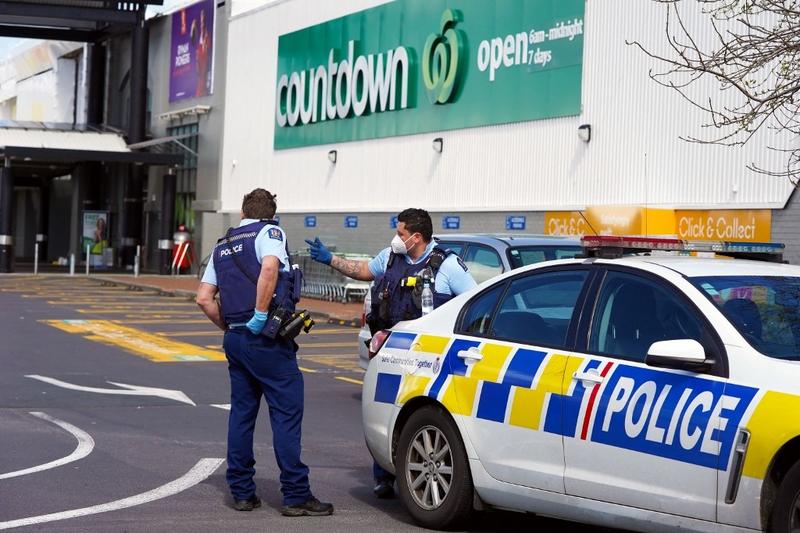 Police keep watch outside the Countdown supermarket at Lynn Mall in Auckland on Sept 4, 2021, the day after an IS-inspired attacker injured six people in a knife rampage before being shot dead by undercover police. (DIEGO OPATOWSKI / AFP)
Police keep watch outside the Countdown supermarket at Lynn Mall in Auckland on Sept 4, 2021, the day after an IS-inspired attacker injured six people in a knife rampage before being shot dead by undercover police. (DIEGO OPATOWSKI / AFP)
WELLINGTON – The New Zealand government is strengthening counter-terrorism laws to make it harder for people who are known threats to undertake terrorist acts, Justice Minister Kiri Allan said on Wednesday.
The changes we are making will improve the effectiveness of the Control Orders Act, and expand the criteria for high-risk individuals who can be covered by the restrictions, which limit their ability to undertake an attack.
Kiri Allan,
New Zealand's justice minister
Following the terror attack in Auckland's Lynn Mall supermarket last year, where the individual responsible was known to be a threat to New Zealand's security, the cabinet sought a review on how the control order regime could be strengthened, Allan said in a statement.
ALSO READ: NZ to criminalize attack planning after mall stabbing
"The changes we are making will improve the effectiveness of the Control Orders Act, and expand the criteria for high-risk individuals who can be covered by the restrictions, which limit their ability to undertake an attack," she said.
"While no law can ever stop a motivated terrorist from undertaking an attack, these changes will go a long way in preventing, disrupting and limiting their ability to do so," the minister said.
The changes to the control order regime include expanding the eligibility criteria for those who can be covered by a control order to include if the person has received a conviction for objectionable publications that promote torture, extreme violence, or cruelty. This is in addition to the current criteria, which includes a conviction for objectionable publications that promote terrorism.
READ MORE: New Zealand revises counter terrorism laws
The changes also expand the eligibility criteria to include people sentenced to home detention and community-based sentences. Currently, it is limited to sentences of imprisonment.
The changes make name suppression requirements more flexible so that an appropriate balance can be struck between preventing the glorification of terrorism activity and reassuring the public that a known terrorism risk is being appropriately managed.
"Overseas, we have seen examples of how imprisoned terrorists continue to attempt to influence and incite others from behind bars. We are seeking to further reduce any ability for designated entities to be glorified or to support others in carrying out acts of terrorism," Allan said.
ALSO READ: NZ raises security threat level as dozens killed in terror attacks
The proposed changes to the designation and control order schemes are in line with the government's commitment to implementing the recommendations of the Royal Commission of Inquiry into the terrorist attack on two Christchurch mosques on March 15, 2019, which killed 51 people, she said.


